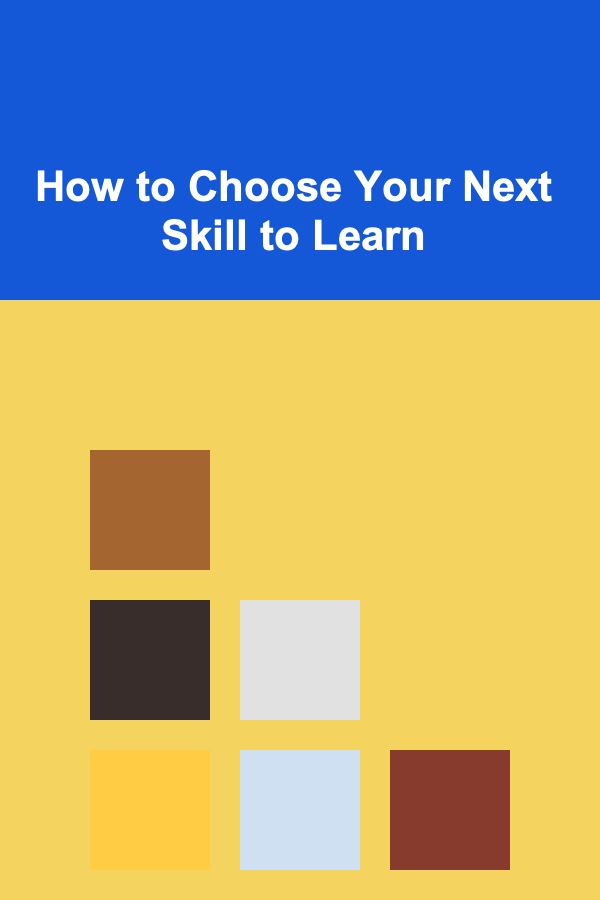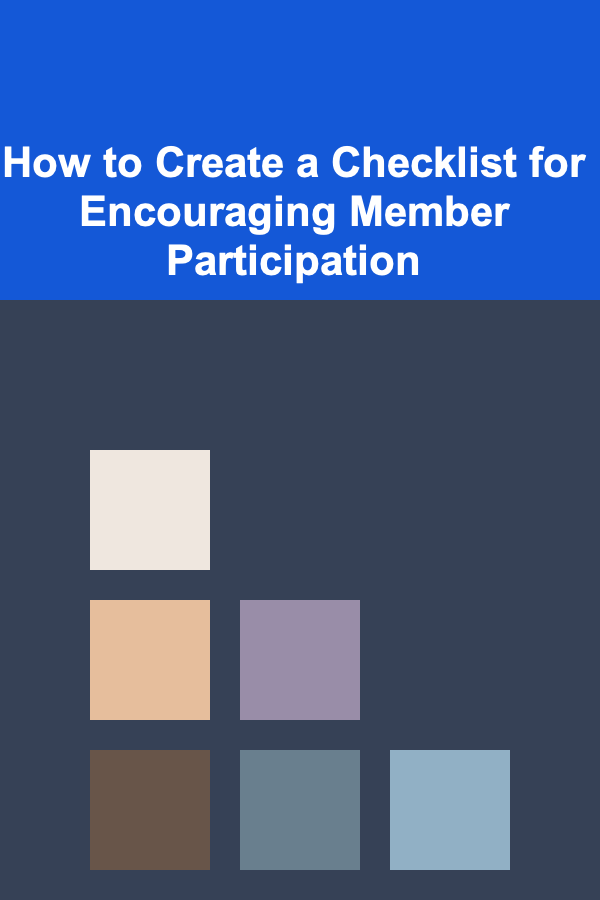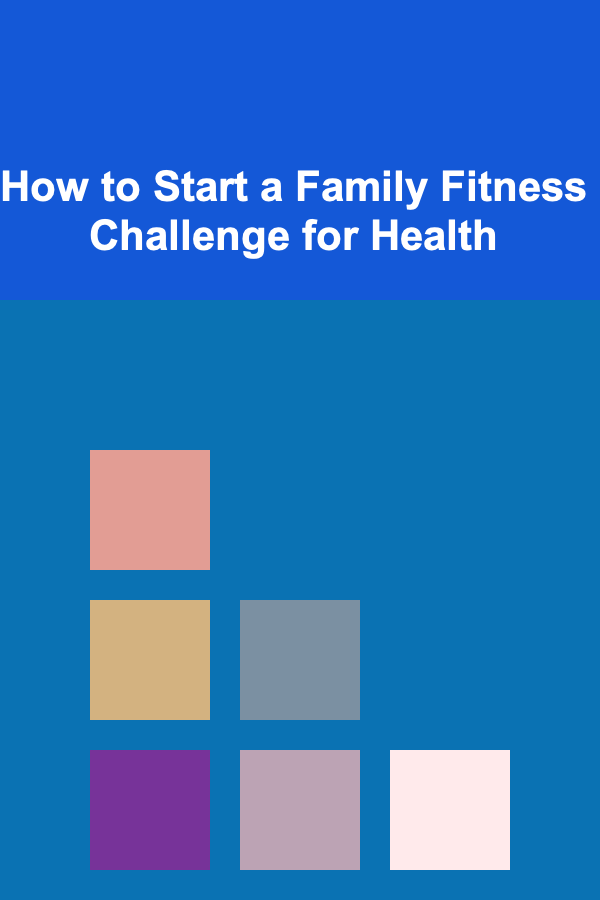
How to Choose Your Next Skill to Learn
ebook include PDF & Audio bundle (Micro Guide)
$12.99$7.99
Limited Time Offer! Order within the next:

In a world that is constantly evolving, the ability to learn new skills has become one of the most valuable assets a person can possess. Whether you're looking to advance your career, develop personal interests, or simply enhance your overall knowledge, selecting the right skill to learn next can feel overwhelming. With so many options available and the pressure of time and resources, making an informed decision is essential. This article will guide you through the process of choosing the next skill to learn in a way that aligns with your personal and professional goals, passions, and the demands of the world around you.
Understand Your Goals and Motivation
The first step in choosing a new skill to learn is to understand your motivation. Are you seeking personal growth, career advancement, or a creative outlet? Defining why you want to learn a new skill will help narrow down your options and provide a clear sense of purpose. The more you understand your goals, the easier it will be to select a skill that aligns with your values and objectives.
1.1 Personal Goals
If you're learning for personal development, you might want to consider skills that challenge you or broaden your horizons. Personal goals could range from hobbies to lifestyle improvements. For example, learning how to cook, picking up a new sport, or mastering a musical instrument might appeal to you if you're looking to enhance your personal satisfaction and well-being.
1.2 Career Goals
On the other hand, career-related goals may demand that you focus on skills that align with your job aspirations or help you advance in your current field. Think about the industries that are growing and the skills they require. If you're in technology, for example, learning data analysis, coding, or machine learning could be beneficial. If you're in healthcare, improving your communication skills or gaining expertise in specialized medical equipment could set you apart.
1.3 Long-Term vs. Short-Term Goals
Understanding whether your skill acquisition is part of a long-term goal or short-term ambition is crucial. If you're planning a career change or seeking a significant advancement, you might need to pick up a foundational skill that will open doors for more specialized skills later on. If your goal is more short-term, learning a skill that can bring immediate benefits, like time management or a new language, could give you a quick return on investment.
Assess the Market Demand and Trends
In addition to your personal interests and goals, it's important to consider market demand and emerging trends when choosing a new skill to learn. The right skill can increase your job prospects, enhance your career growth, and keep you ahead of the curve in a competitive world.
2.1 Research Industry Trends
Some skills are timeless, while others are shaped by the ever-changing demands of industries and technology. Researching trends in your industry can give you insight into which skills are currently in high demand. For instance, the rise of artificial intelligence, cloud computing, and data science in the tech industry has made programming, AI, and machine learning skills highly sought after.
Stay updated with industry reports, attend conferences, and follow thought leaders on platforms like LinkedIn or Twitter to understand which areas are thriving and gaining traction.
2.2 Evaluate Emerging Fields
With the rapid advancements in technology, there are always emerging fields where new skills are required. For example, the rise of blockchain technology and its application in various sectors like finance, healthcare, and logistics has created a demand for blockchain developers. Similarly, the expansion of renewable energy has led to a need for green technology experts.
By staying informed about emerging fields, you can position yourself to acquire new skills that will remain relevant and valuable in the future.
2.3 Job Market Demand
If you're thinking about learning a skill primarily to enhance your career prospects, evaluating the job market is essential. Platforms like LinkedIn, Glassdoor, and Indeed offer valuable insights into what skills are being requested by employers. Job descriptions often list required and preferred skills, which can help you determine what to learn next to make yourself more competitive in your chosen field.
Leverage Your Existing Knowledge and Strengths
When deciding on a new skill, it's beneficial to assess your existing knowledge and strengths. Building on what you already know can be a strategic way to learn efficiently and quickly. The process of acquiring new skills becomes easier when they complement your current abilities.
3.1 Build on Your Strengths
Identify the areas in which you're already skilled. If you're good at problem-solving, learning a skill like coding or project management may come more naturally to you. Similarly, if you have a strong background in design, enhancing your skills in graphic design tools or mastering UX/UI principles could provide a powerful boost to your capabilities.
The idea here is not to reinvent the wheel but to refine and expand your existing skill set. Building upon your strengths can be both motivating and rewarding, as you can see progress faster and apply your new skills more effectively.
3.2 Identify Gaps in Your Knowledge
Alternatively, assess the gaps in your current skill set. Are there areas where you're lacking expertise, and learning a new skill could complement your abilities? If you have strong technical knowledge but struggle with communication, learning public speaking, or mastering interpersonal communication could be an excellent choice.
Filling in the gaps can create a well-rounded skill set, making you more versatile in the workplace or in your personal life.
Consider the Learning Process and Time Commitment
Learning new skills requires time and effort. Some skills can be acquired in a matter of weeks or months, while others may take years to master. Before committing to a new skill, it's important to assess how much time you are willing and able to dedicate to learning.
4.1 Time to Mastery
Different skills have different learning curves. Some skills, such as basic coding or photography, can be learned fairly quickly through self-paced online courses or tutorials. On the other hand, mastering a foreign language or acquiring a complex technical skill like machine learning can take years of continuous study and practice.
Evaluate your available time and the timeline you have in mind. If you're looking for a skill you can master quickly, consider something that can be integrated into your daily life and provides immediate benefits. If you're willing to make a long-term commitment, select a skill that will reward you over the years and open up new opportunities down the road.
4.2 Resource Availability
Learning a new skill often requires access to resources such as online courses, books, mentors, or practice opportunities. Consider the availability of these resources when choosing a skill. If you're interested in learning a skill like digital marketing, there are countless free and paid online resources that you can use. However, if you want to learn a more specialized skill like data science or machine learning, you may need to invest in more formal education or find a mentor who can guide you through the learning process.
4.3 Personal Learning Style
Consider how you learn best. Some people thrive in structured environments, such as formal classes or workshops, while others prefer self-paced learning through books, podcasts, or online tutorials. Understanding your learning style will help you select the most appropriate resources and make the learning process more enjoyable.
Balance Passion with Practicality
Choosing a skill based on passion can lead to great personal satisfaction, but it's also important to balance passion with practicality. Passionate pursuits are rewarding, but they may not always be aligned with your long-term goals or market demands. Similarly, pursuing a purely practical skill for career advancement might not bring you the joy or fulfillment you're seeking.
5.1 Finding a Balance
Look for ways to combine your passions with practical skills. For example, if you're passionate about photography but want to use it for career advancement, you could learn advanced techniques or explore commercial photography. Alternatively, if you're interested in travel and culture, learning a new language could open up opportunities for both personal enjoyment and career development.
5.2 Avoid Burnout
While it's tempting to focus solely on what you're passionate about, ensure that the learning process doesn't lead to burnout. Trying to master a skill that is too far removed from your interests could result in frustration and lack of motivation. It's important to find skills that offer a balance between your enthusiasm and the practical benefits they bring.
Experiment and Stay Curious
Choosing a skill doesn't have to be a final decision. In fact, experimentation and curiosity are essential parts of personal growth. You don't have to commit to just one skill forever---exploring different areas can open up new doors and inspire you in ways you never expected.
6.1 Test and Explore
If you're unsure about what skill to learn next, try experimenting with different options. Take a free online course, attend a workshop, or spend time practicing a skill in your spare time. Often, hands-on experience is the best way to determine whether a skill truly resonates with you.
6.2 Stay Open-Minded
The key to learning is maintaining an open mind. As you explore new areas, you may find that some skills complement others or lead you to new areas of interest. By staying curious and willing to explore different possibilities, you ensure that your learning journey remains dynamic and fulfilling.
Conclusion
Choosing the next skill to learn can be a life-changing decision. By assessing your goals, evaluating market demand, considering your existing strengths, and balancing passion with practicality, you can select a skill that aligns with your aspirations. Whether for personal growth or professional advancement, the right skill can open doors, enhance your capabilities, and bring you closer to your goals.
Remember, learning is a lifelong journey. There is no perfect skill or one-size-fits-all approach. Experiment, stay curious, and choose skills that excite and challenge you. The world is full of opportunities, and by continuously learning, you set yourself up for a future filled with growth, success, and fulfillment.
Reading More From Our Other Websites
- [Home Rental Property 101] How to Create a Smooth Move-In Process for New Tenants
- [Personal Care Tips 101] How to Make Your Body Wash Last Longer
- [Organization Tip 101] How to Store Toys Safely for Younger Siblings
- [Organization Tip 101] How to Streamline Your Car's Tech Setup for Convenience
- [Needle Felting Tip 101] How to Design and Produce Custom Needle‑Felted Phone Cases with Intricate 3‑D Details
- [Home Staging 101] How to Stage a Mid-Century Modern Home for Sale
- [Organization Tip 101] How to Build a DIY Raised Garden Bed for Vegetables and Flowers
- [Personal Care Tips 101] How to Apply Face Serum for Combination Skin
- [Personal Care Tips 101] How to Choose the Best Face Masks for Every Skin Type
- [Personal Care Tips 101] How to Keep Your Skin Hydrated During Summer with Body Lotion

How to Create a Checklist for Encouraging Member Participation
Read More
How to Set Up a Snack Station for Volunteers
Read More
How to Start a Family Fitness Challenge for Health
Read More
How to Use Trellises for Vertical Plant Growth
Read More
How to Conserve Biodiversity in Your Backyard
Read More
How to Brew Cold Drip Coffee (Kyoto Style): A Comprehensive Guide
Read MoreOther Products

How to Create a Checklist for Encouraging Member Participation
Read More
How to Set Up a Snack Station for Volunteers
Read More
How to Start a Family Fitness Challenge for Health
Read More
How to Use Trellises for Vertical Plant Growth
Read More
How to Conserve Biodiversity in Your Backyard
Read More